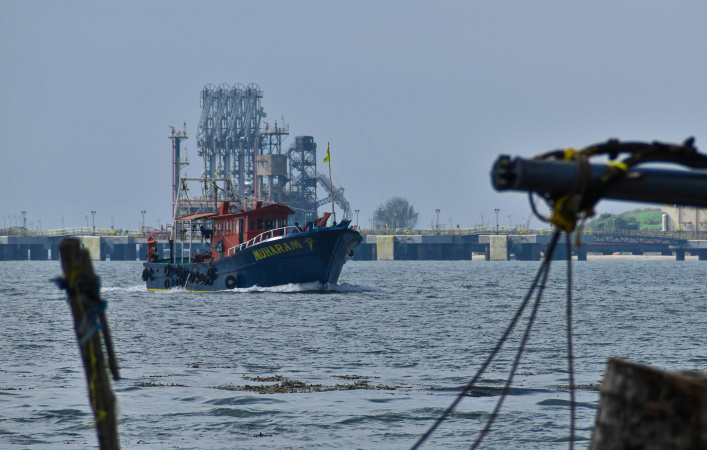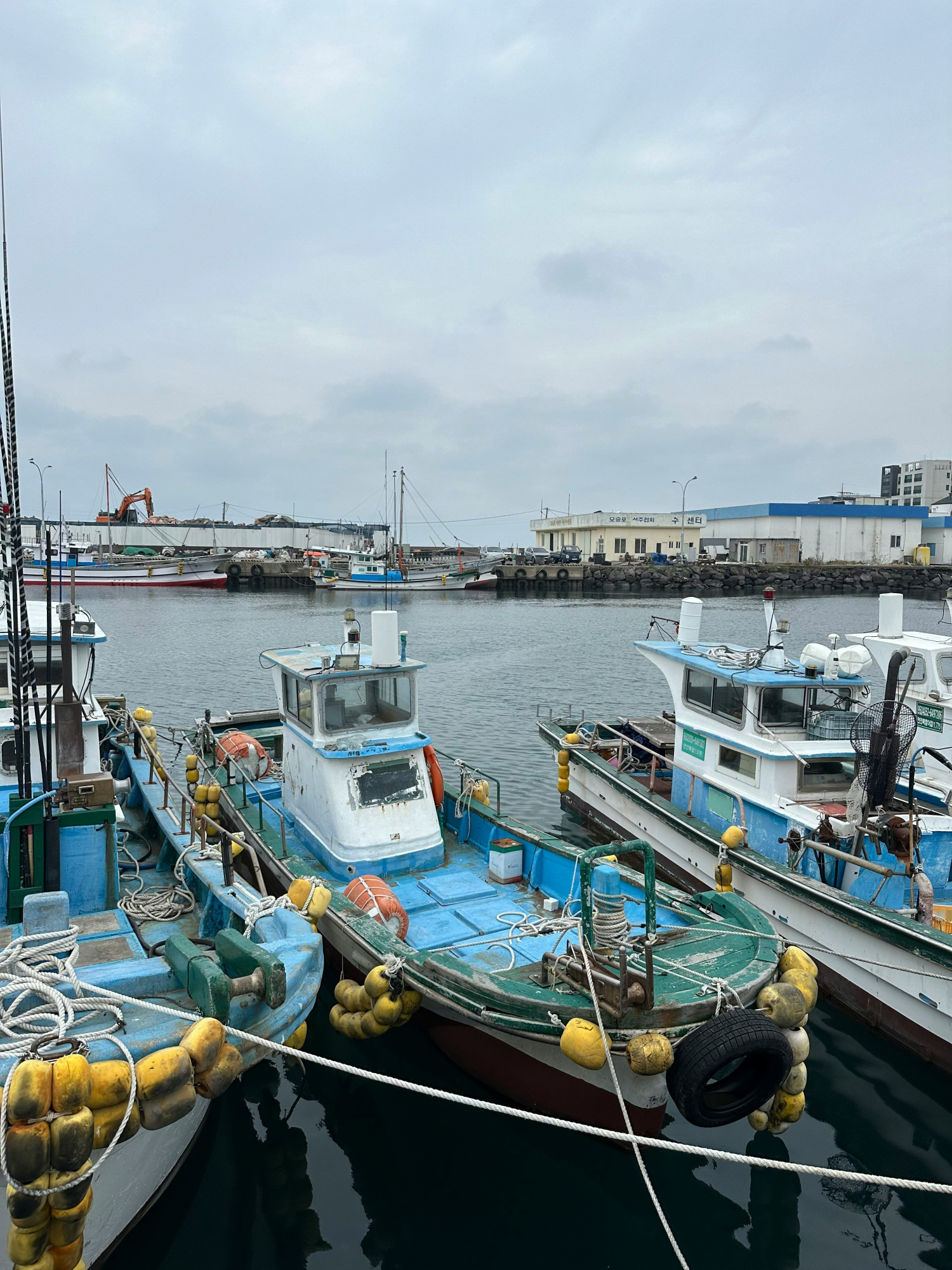
The Taiwan Association for Human Rights (TAHR) and Japan’s Human Rights Now (HRN) released a joint investigation today (Oct. 15), exposing serious human rights risks — including forced labor and illegal fishing — hidden within the Taiwan–Japan tuna supply chain.
The two-year report details interviews with migrant crew members from two Taiwanese distant-water fishing vessels, Yu Fu and Yu Shun No. 668, revealing abuses that meet the International Labour Organization’s (ILO) indicators of forced labor. Fishermen reported being owed up to 15 months of wages, having their passports confiscated, working excessive hours, and enduring food and water shortages without proper means to communicate with the outside world.
“For one month, we ran out of food — we only ate rice and fish bait. There was no bottled water, only desalinated seawater, and we worked 16 to 18 hours a day,” said H., a former Indonesian crew member from the Yu Shun No. 668.
Another Indonesian former crew member, A., from the Yu Fu, said:
“There were no communication devices on board. I could only contact my family when we docked, and that’s when I learned my father had passed away.”
15 Months of Unpaid Wages and 9 Extra Months at Sea
Ten Indonesian workers aboard the Yu Fu were reportedly owed 15 months of unpaid wages, totaling US$80,850 (around NT$2.47 million). They only received payment in August 2024 after civil society groups and Taiwan’s Fisheries Agency intervened.
Their contracts initially required six months of fishing operations in the Pacific Ocean, but they were forced to stay at sea for 15 months in American Samoa waters. They were also made to sign additional contracts without explanation or time to read, being told simply to “just sign.”
Crew members said they had to surrender their passports, lacked bottled water and medical supplies, and slept on bug-infested bunks that caused severe itching. They also described being verbally abused and threatened by the captain, working on as little as four hours of sleep per day in fear of losing their jobs.
Prosecutors Decline to Indict Owner Despite Exploitation Evidence
The Yu Fu’s owner was accused of violating Taiwan’s Human Trafficking Prevention Act and engaging in labor exploitation, but prosecutors in April 2025 declined to indict, citing “insufficient criminal intent.”
However, the investigation confirmed that payments for the vessel’s catch were transferred through FCF, one of Taiwan’s largest seafood trading companies — showing that the ship operated within a formal commercial supply chain.
International NGO Shark Guardian had previously accused FCF of continuing to purchase from fleets involved in labor abuse and environmental violations, despite FCF’s claims of adhering to sustainable fishing standards. FCF dismissed those accusations as “outdated,” but the new Taiwan–Japan report shows labor exploitation linked to FCF continues.
The report also revealed that FCF and its Japanese subsidiary FCN supplied tuna to major Japanese companies such as Toyo Reizo, Itochu Corporation, and Nippon Suisan, demonstrating how Taiwan’s distant-water tuna enters the Japanese retail and wholesale markets through opaque transshipment routes.

Stranded Crew from Yu Shun No. 668 Still Can’t Go Home
Meanwhile, 12 foreign crew members from the Yu Shun No. 668 have been stranded in Taiwan for over a year since October 2024, after their shipowner went bankrupt. They have not received their long-overdue wages and remain unable to return home, living in rented houses with frequent power and water cuts and insufficient food.
Control Yuan member Chi Hui-jung launched an investigation in March, criticizing the Fisheries Agency’s inaction and noting that prolonged unpaid wages and lack of intervention could meet Taiwan’s legal definition of human trafficking.
The report stated that the Yu Shun No. 668 case reflects two systemic failures — the vulnerability of migrant workers when employers shirk responsibility, and the limited capacity of government mechanisms to provide timely remedies. It also pointed out that Japan’s SINGAZ JAPAN Co., Ltd. had included the Yu Shun No. 668 in its ultra-low-temperature longline fleet, raising questions of shared accountability among international buyers and operators.
Human Rights Groups Demand End to Dual Employment System
Human rights groups accused the shipowners and crewing agencies of building a “system of exploitation”, using forced labor to keep migrant fishermen in subservient conditions. They emphasized that both vessels’ tuna products entered Japan’s market, linking Japanese companies, Taiwan as flag and port state, and downstream buyers to the forced labor structure.
The groups urged Taiwan’s government to abolish the dual employment system, extend domestic labor law protections to distant-water fishermen, and establish accountability mechanisms for unpaid wages. They also called on Japan to restrict imports of seafood linked to human rights abuses and ensure that catch documentation can verify that seafood products are free from forced labor.
In response, Taiwan’s Fisheries Agency announced on Oct. 2 that it will require distant-water fishing companies to set aside wage compensation funds based on risk levels. Those failing to comply will lose their operation permits, with full enforcement expected by 2026.
[PTS / Reporter Jiang Chu] 2025/10/15 14:23
[Photo by unsplash]
